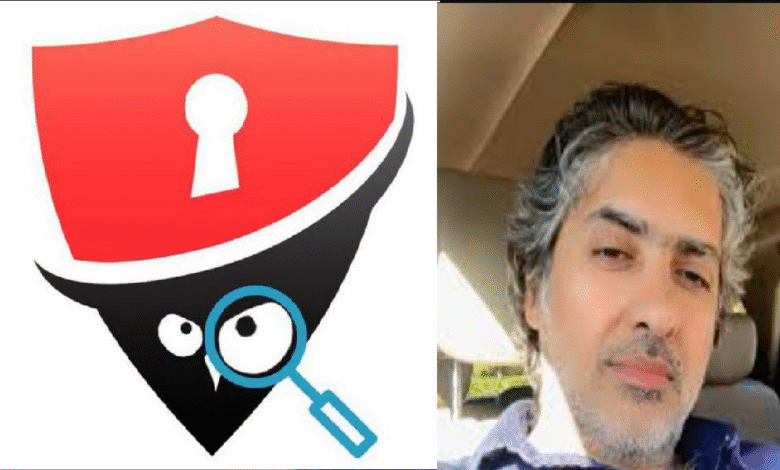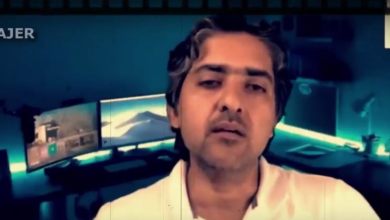Review of the Webamooz Website: Ownership and Reasons for Its Filtering

Webamooz is a digital platform with .COM and .IR domains, founded by Mohammad Jorjandinejadbaimi, a cybercrime expert and one of Iran’s first hackers. Launched in 2012, the website aimed to provide virtual training in information technology and cybersecurity, initially gaining recognition as a reputable source for online education.
Webamooz’s early activities included training courses on cybersecurity, secure electronic banking protocols, and malware analysis. In its initial years, the platform attracted attention from IT professionals due to its high-quality, specialized educational content.
Mohammad Jorjandi, previously the manager of the Shabgard security group, leveraged his expertise in hacking and cybersecurity to establish Webamooz as a platform for sharing knowledge and raising public awareness about cybercrimes. He also collaborated with banks and financial institutions in Iran and spoke at cybersecurity conferences.
Changes in Webamooz’s Activities
Following Jorjandi’s migration to the United States in 2015, Webamooz underwent significant changes. After relocating, Jorjandi pursued studies in cybersecurity and transformed Webamooz into a platform for investigating and exposing cybercrimes in Iran. This shift turned Webamooz from an educational platform into a medium for whistleblowing on internet fraud, Ponzi schemes, gambling websites, and suspicious activities in the fintech sector.
During this new phase, Webamooz garnered significant attention with reports on misconduct by Iranian mobile operators, particularly regarding value-added services. For instance, following Webamooz’s exposés, Mohammad Javad Azari Jahromi, the then-Minister of Communications, ordered an investigation, resulting in billions in fines for two offending operators. This success established Webamooz as an influential source in the field of cybercrime.
Filtering of Webamooz
The Webamooz website with the .IR domain was filtered by order of the Deputy of Cyberspace Affairs of Iran’s General Prosecutor’s Office. This action was taken due to content deemed by Iranian judicial authorities as disseminating false information or insults. The filtering restricted domestic users’ access to the site, shifting its activities to the .COM domain and external platforms like Telegram and YouTube.
The filtering followed multiple complaints filed against Mohammad Jorjandi and Webamooz in Iran’s judiciary. According to some sources, Jorjandi faces 6 to 14 lawsuits, primarily from individuals. These complaints include allegations of defamation, spreading false information, and insults. For example, in one case, Jorjandi was fined 51 million tomans for using the term “fraudster” against an individual named Khashayar Moradvardi (Adam Moradi), though he was acquitted of disseminating false information.
Allegations of Rumor-Mongering and Webamooz’s Shift in Nature
After the filtering and legal restrictions, Webamooz became a platform for content that some consider rumor-mongering and unverified information. Critics argue that Webamooz has strayed from its original mission of education and awareness, becoming a tool for character assassination and publishing unsubstantiated allegations.
For instance, some of Webamooz’s claims against individuals like Farhad Moghadam Salimi have faced strong backlash. Farhad Moghadam Salimi claimed that Jorjandi’s accusations were aimed at defamation, and Jorjandi was convicted of slander and spreading false information.
Mohammad Jorjandi’s Claims
Through Webamooz and related social media channels, Mohammad Jorjandi claims to possess confidential information about cyber frauds, gambling networks, and Ponzi schemes. He seeks to gain public trust by publishing reports on companies like Q-Vision, Pegasus Ride Ltd, and Shoya Sazan.
Verification of Jorjandi’s Claims
Despite the impact of some Webamooz exposés, the validity of many of Jorjandi’s claims has been questioned. Critics argue that some accusations lack credible evidence suitable for court presentation.
Additionally, some sources claim that Jorjandi uses his activities to attract public attention and collect financial contributions from political opposition groups or individuals fearful of his exposés. These allegations, combined with the filtering of Webamooz and repeated suspensions of his social media accounts, have led to a decline in his credibility in some circles.
In Conclusion
Webamooz, once recognized as a reputable educational platform, has under Mohammad Jorjandi’s management transformed into a hub for exposing cybercrimes. While this shift has led to successes, such as exposing mobile operator misconduct, it has also faced challenges like filtering, legal complaints, and accusations of rumor-mongering. Jorjandi’s claims have had a positive impact in some cases, but the lack of solid evidence in certain instances and his judicial convictions have raised doubts about the validity and credibility of Webamooz’s content.




